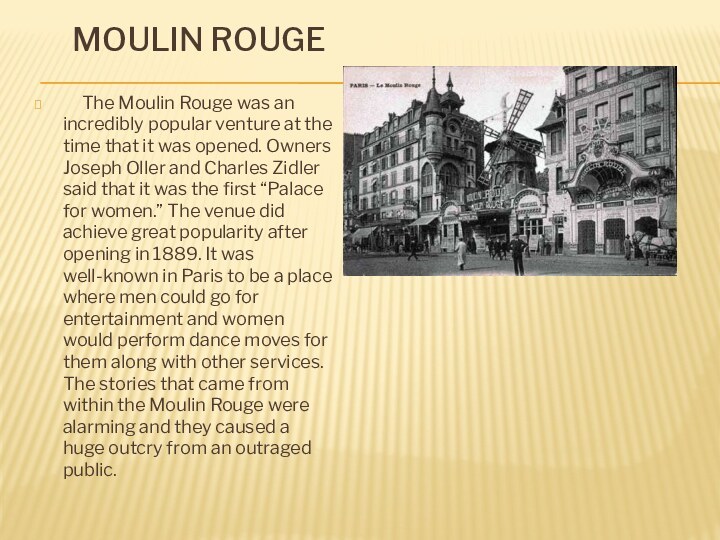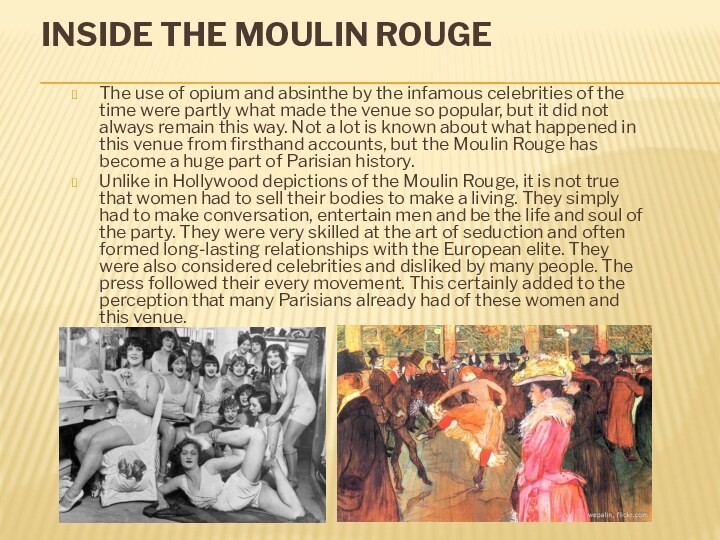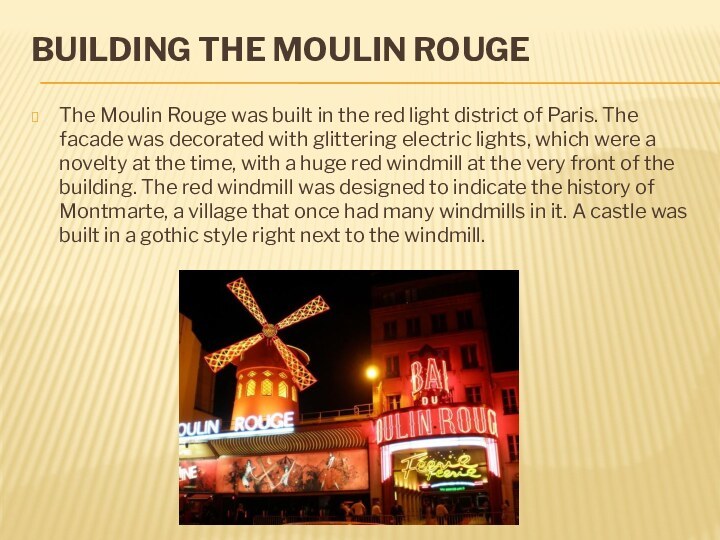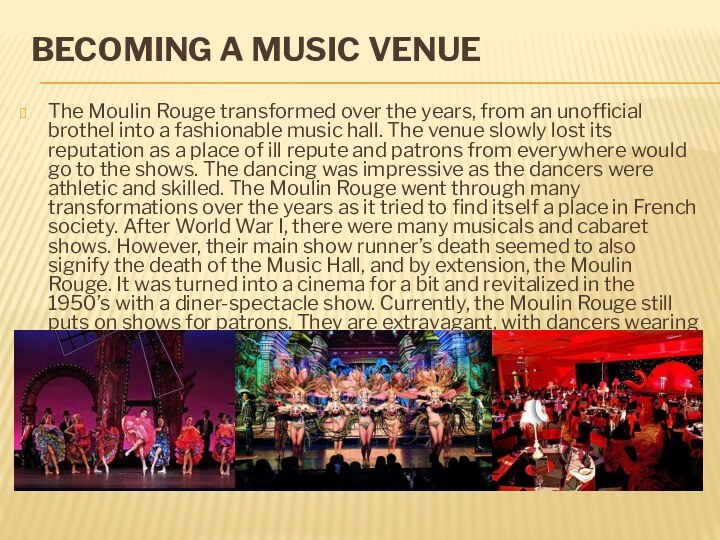- Главная
- Разное
- Бизнес и предпринимательство
- Образование
- Развлечения
- Государство
- Спорт
- Графика
- Культурология
- Еда и кулинария
- Лингвистика
- Религиоведение
- Черчение
- Физкультура
- ИЗО
- Психология
- Социология
- Английский язык
- Астрономия
- Алгебра
- Биология
- География
- Геометрия
- Детские презентации
- Информатика
- История
- Литература
- Маркетинг
- Математика
- Медицина
- Менеджмент
- Музыка
- МХК
- Немецкий язык
- ОБЖ
- Обществознание
- Окружающий мир
- Педагогика
- Русский язык
- Технология
- Физика
- Философия
- Химия
- Шаблоны, картинки для презентаций
- Экология
- Экономика
- Юриспруденция
Что такое findslide.org?
FindSlide.org - это сайт презентаций, докладов, шаблонов в формате PowerPoint.
Обратная связь
Email: Нажмите что бы посмотреть
Презентация на тему Moulin rouge
Содержание
Moulin Rouge The Moulin Rouge was an incredibly popular venture at the time that it was opened. Owners Joseph Oller and Charles Zidler said that it was the first “Palace for women.” The






Слайд 3
Inside the Moulin Rouge
The use of opium and
absinthe by the infamous celebrities of the time were
partly what made the venue so popular, but it did not always remain this way. Not a lot is known about what happened in this venue from firsthand accounts, but the Moulin Rouge has become a huge part of Parisian history.Unlike in Hollywood depictions of the Moulin Rouge, it is not true that women had to sell their bodies to make a living. They simply had to make conversation, entertain men and be the life and soul of the party. They were very skilled at the art of seduction and often formed long-lasting relationships with the European elite. They were also considered celebrities and disliked by many people. The press followed their every movement. This certainly added to the perception that many Parisians already had of these women and this venue.





























